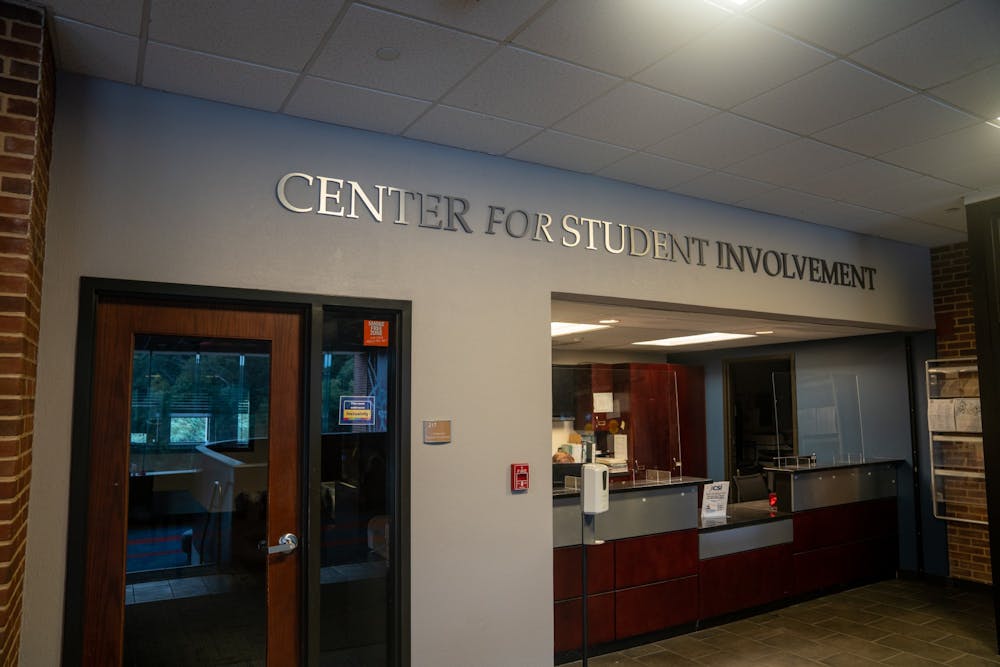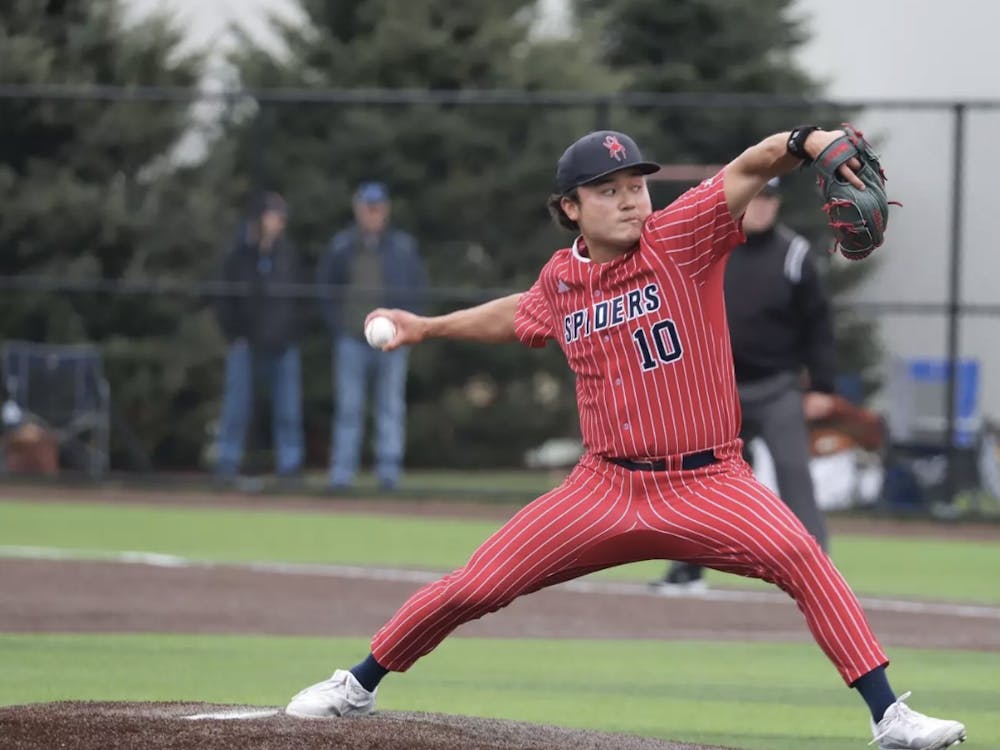Editor's Note: Natasha Sokoloff is a member of Kappa Delta. The Collegian is considered a selective organization.
New policies for hazing prevention are being developed at the University of Richmond following the passage of a new Virginia law.
Also referred to as Adam’s Law, the legislation was approved after Virginia Commonwealth University first-year Adam Oakes was found dead on Feb. 27, 2021. Following his death, the Oakes family pushed for more extensive anti-hazing legislation. The General Assembly overwhelmingly passed the law earlier this year and it went into effect on July 1.
Under the new law, institutions of higher education are required to provide current, new and potential members of student organizations, as well as advisors, with hazing prevention training.
Oakes wasn’t informed about the dangers of hazing when he was pledging the VCU chapter of Delta Chi because he was an “underground pledge,” said Courtney White, Oakes’ cousin and president of the Love Like Adam Foundation. As an unofficial pledge, he did not undergo any of the anti-hazing training that new members are normally required to, she said.
“He didn't even know hazing existed,” she said.
Eleven members of the VCU chapter of the Delta Chi fraternity were charged with hazing in September 2021 in relation to Oakes’ death, which was found to be alcohol poisoning, according to a press release from the Richmond Police Department.
Seven of the 11 were also charged with serving alcohol to a minor at the “big-little” party Oakes attended the night of his death. The VCU chapter of Delta Chi was expelled in May 2021, according to a VCU statement.
On Sept. 16, the Fairfax County Circuit Court approved a monetary settlement for the family to receive $995,000 from VCU and the Commonwealth of Virginia, according to a VCU news release.
Prosecutors dropped charges against five of the members in August this year, White said.
Six of the defendants plead guilty or no contest and agreed to participate in anti-hazing education with the Love Like Adam Foundation and restorative justice, which entailed speaking with the Oakes family about what happened the night of his death.
His family quickly figured out that if Oakes and the fraternity members involved had been more informed about hazing, they would’ve had a number to call and realized what was happening before it was too late, White said. The family started the foundation as a way to ensure every student is educated on what hazing looks like and how to intervene, she said.
Enjoy what you're reading?
Signup for our newsletter
“We couldn't save Adam and we can't bring him back, but we can help make changes for future generations of students in an attempt to keep this from happening to any other kids and their families,” the foundation website states.
UR’s Center for Student Involvement has developed trainings for the fall semester, said Andrew Gurka, director of CSI.
Training sessions should include extensive education about hazing and its dangers, including alcohol intoxication, according to the law. Programs should also explain laws and policies and make clear that an institution's disciplinary process is not a substitute for the criminal legal process.
UR uses training from The Gordie Center, which is an anti-hazing foundation based at the University of Virginia and created after the death of Lynn Gordon Bailey Jr., an 18-year-old University of Colorado student. The program includes a clear definition of hazing as well as the importance of intervening, Gurka said.
Now that training is required by law and the consequences seem more significant, students might take hazing more seriously, said Emma Bender, vice president of recruitment for UR’s Panhellenic Council.
Organizations found not in compliance with the training requirement will be put on “inactive” status until the requirement is met and will not be able to access funds or host events, according to the CSI website.
CSI has always required hazing prevention training within fraternity and sorority communities because Greek life tends to be what comes to mind when people think of hazing, Gurka said.
“We've always done hazing prevention training, prior to the law being passed, but this just sort of codified it and made it more formal and structured for us,” Gurka said.
Any organization that's considered selective is required to go through hazing education, Gurka said. CSI defines a selective organization as any that has a barrier to entry. This includes a recruitment process as well as an election, tryout or audition, he said. Organizations without a threshold for entry are called open organizations.
Bender said that although much of the discussions surrounding hazing are focused on Greek life, it could also be a problem in other organizations, including those that aren’t selective.
White said: “Hazing does not discriminate.”
Gurka described the changes as an opportunity to make all students more aware of hazing.
“So, while the law doesn't require us to do it for open organizations, the university felt like this is a prime opportunity to educate all students about ‘What does hazing look like? How do you report hazing? How can you be a bystander when you see hazing happening?’” he said.
About 450 students have already gone through the current member training, Gurka said. All 876 first-year and new transfer students went through the training during New Spider Orientation as well, he said.
Gurka expressed the importance of the training for new students, even if they weren’t completely planning on joining a selective organization.
The law also requires institutions to maintain and publicly report findings of hazing violations.
At the end of the fall semester, CSI will make public on UR’s website any hazing cases in which individuals or groups were found to haze members.
There is a hazing reporting form on the CSI website, where faculty, staff, students or community members can submit a tip — anonymously if they so choose.
In addition to the online form, reports can be made in person at CSI or UR Police Department, Gurka said.
The law requires schools to implement policies that grant immunity to anyone who reports an act of hazing. UR’s hazing policy is being updated to conform to the law, Gurka said. The clause is similar to the Safe Spiders Protocol, which states that an intoxicated student or any student actively involved in assisting them shall not be charged with a violation of UR’s alcohol, tobacco and other drug policy when seeking medical assistance.
White emphasized that Oakes’ death was completely and utterly preventable. But she said that because his brothers were more scared about getting in trouble than they were about saving him, he lost his life.
The Love Like Adam Foundation not only aims to provide hazing education and scholarships for college students but is now expanding to provide education to parents and students in K-12 schools. Members of the foundation have been working on building the curriculum at the same time that the criminal process is underway, according to the website.
“I am definitely a fighter,” White said. “I think you have to be in this case, because there's such a code of silence amongst the fraternities and sororities.”
A total of 20 registered student organizations have a selective status and all members (and subsequent new members) and advisors are required to participate in hazing prevention training, Gurka wrote in an email to The Collegian.
Of the 20 organizations, 14 are social fraternities and sororities, Gurka wrote.
White expressed that while the fraternity culture may have contributed to Oakes’ death, she was not advocating for getting rid of all Greek life.
“What I'm saying is to rebuild the culture within,” she said.
Once you rebuild it, you get back to the roots of what fraternities and sororities are supposed to be about — building leadership, strong relationships and connections, White said.
“If we can get back to that, and eliminate hazing in the future of fraternities and sororities, then there’s hope,” she said.
The Oakes family and VCU reached an agreement for a national model that identifies changes to fraternity and sorority life to be implemented at colleges and universities, according to the Sept. 16 VCU news release.
“This is a blueprint to foster a safer and healthier community for students who are part of fraternities and sororities and to create a climate of respect and inclusion that is needed for academic success,” according to a joint statement from the Oakes family and VCU.
Contact news editor Natasha Sokoloff at natasha.sokoloff@richmond.edu.
Support independent student media
You can make a tax-deductible donation by clicking the button below, which takes you to our secure PayPal account. The page is set up to receive contributions in whatever amount you designate. We look forward to using the money we raise to further our mission of providing honest and accurate information to students, faculty, staff, alumni and others in the general public.
Donate Now



